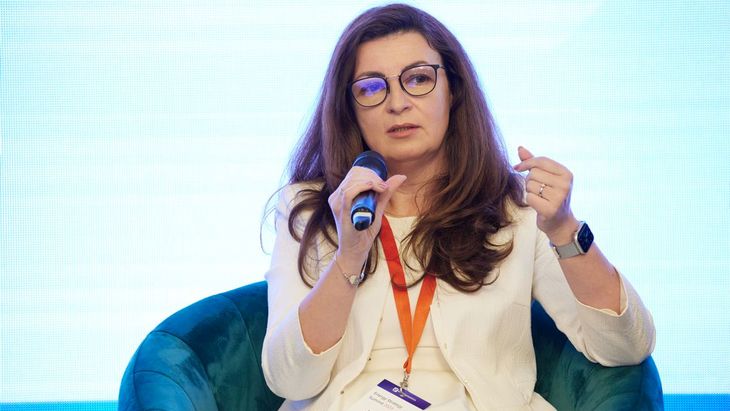Renewable energy is becoming the largest investor in the energy sector, with an estimated contribution of 30-40 billion euros in 2050, but the lack of labor can be an obstacle in the development of projects, said Lăcrămioara Diaconu-Pințea, Country Manager of OX2 Romania, at the 9th edition of the Energy Strategy Summit, an event organized by Energynomics.
“Even if the renewable energy sector has absorbed a number of jobs, given the multitude of projects, I still don’t see young people with whom to do these projects. We have students doing internships this summer, but the knowledge to help them find jobs isn’t there yet. We need the support of academics and authorities to understand that the lack of manpower can be a big limitation. There are 60-65 million jobs globally (in the energy sector), and half come from renewable energy. So, renewable energy is a very large employer and clearly, in the future we expect this share to increase”, Pințea said.
Moreover, last year, the main source of energy in Europe was renewable, with a share of 22.3%, followed by nuclear energy and that obtained from natural gas. However, this evolution was anticipated and accelerated by European policies in the context of the energy crisis caused by the conflict in Ukraine. According to Pințea, the acceleration of renewable energy projects is “a road of no return” both for the European Union and for Romania.
This is also an opportunity for Romania, which already has a long-term strategy to reduce carbon emissions and where the share of renewable energy in final consumption is currently 31.7%, but with the prospect of reaching 34-35 % in 2030. The opportunities offered by the significant investments announced in Romania are, however, doubled by a series of challenges, including the stability and predictability of legislation, the difficulties of connecting new renewable energy projects to the electricity grid and the security of energy supply.
Another challenge is related to long-term contracts, the absence of which for over a decade from the local energy landscape has meant that many projects have not come to fruition, causing a shortage of renewable installations nationally for the past 10-15 years. According to Pințea, the slow pace of granting approvals and authorizations is another impediment to the development of the sector.
“For example, it took us six months to install a wind speed measuring pole, and it was a patch of land of several square meters. Think about what this means for a wind project”, said Pințea.
A way to speed up the realization of these investments is to prioritize projects that already benefit from co-financing from various sources, Pințea appreciates. For example, Transelectrica and the energy distributors have already announced that they have considerable projects in the works, worth 1.5 billion euros, which can be realized in the coming years.
Energy Strategy Summit 2023 was organised by Energynomics with the support of ABB, ASTRASUN Solar, BCR, CEZ Romania, Eaton Electric, Electrica Furnizare, Electro Service RB, Elektra Renewable Support, EnergoBit, Enevo Group, E.ON, Finder, Huawei, MET România Energy, OMV Petrom, OX2 România, Phoenix Contact, Photomate, ProCredit Bank, REI Grup, Renomia Gallagher, Romgaz, Schneider Electric, Signify, Transelectrica, Taw Energy, Volt, WIKA, Wiren, Alexandrion Group, Aqua Carpatica, Klarmedia and Mobexpert.
